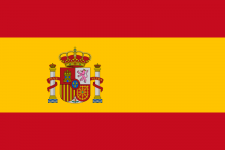
This study by the ISEAK Foundation analyses the perceptions and attitudes of Spanish citizens towards immigration, as well as their implications in the support of or opposition to immigration policies of entry and integration. In general terms, citizens tend to overestimate the size of immigration, underestimate their socioeconomic characteristics, and exaggerate the negative effects that the arrival of immigration has on the labour market, the welfare state, culture, and security. On the other hand, Spanish society considers that structural factors—such as bureaucratic processes or discrimination—are more important than individual characteristics when explaining labour gaps between immigrants.
The study shows that (1) feelings of threat predict opposition to the entry of immigration, (2) the perception that labour gaps are due to characteristics inherent to immigrants—effort, language, cultural norms—is associated with greater opposition to integration policies, and (3) political ideology, education, and income significantly predict greater support for the entry and integration of immigration.
The results of the experiment are of great relevance to the formulation of public policies. Providing information about the effects of integration on employment and objective information about the use that immigrants make of public services significantly increases support for the increase in immigration and also increases support for redistributive policies.
The experimental results reveal other important aspects. Firstly, providing the public with information about the complementarity between native and immigrant workers in the labour market reduces the feeling of cultural threat, a key factor in predicting anti-immigration sentiment. Secondly, informing citizens about the use of resources by the immigrant population not only corrects erroneous perceptions about unemployment and the use of social assistance, but also reduces the perceived tax burden.
Authors' conclusions underline the importance of addressing misinformation to promote the integration of the immigrant population. Policies should focus on reducing the identity and economic concerns of the native population to increase social cohesion and economic well-being.
Recommendations
The ISEAK Foundation proposes several measures to reduce misinformation around immigration and promote integration:
1. De-bunking initiatives: Develop actions to teach the population to detect misleading data and news. An example is the "Go Viral!" game, developed by the University of Cambridge, which exposes people to techniques used to spread online hoaxes. Given the expansion of votes for far-right parties in Europe and the increase in support for these parties among younger voter cohorts in Spain, incorporating media literacy in education—both pre-university and university—is key to recognising and discarding false and misleading information.
2. Awareness campaigns: Create campaigns advocating for rigorous and truthful information. An example is the "Stop and Consider" campaigns by the Australian Electoral Commission, which encourages voters to carefully check the sources of election information.
3. Promoting diversity: Encourage diversity through cooperative activities between native and immigrant populations. The idea behind these initiatives is that the integration of immigration and the consequent increase in diversity does not create a sense of cultural threat to the native population. Spaces are created where the native and immigrant population can exchange experiences and share artistic, sports, and educational activities. Successful examples of these multicultural centres can be found in Vienna (Austria), Berlin (Germany), and Warsaw (Poland).
Details
- Authors
- Odra Quesada, David Martinez de Lafuente, and Sara de la Rica (ISEAK Foubdation)
- Geographic area
- Spain
- Contributor type
- Academics and experts
- Original source
- Posted by
